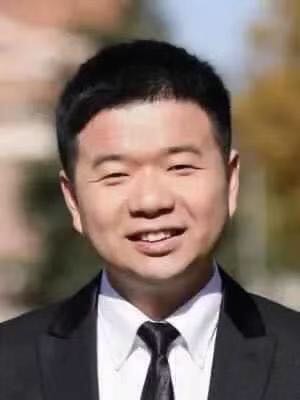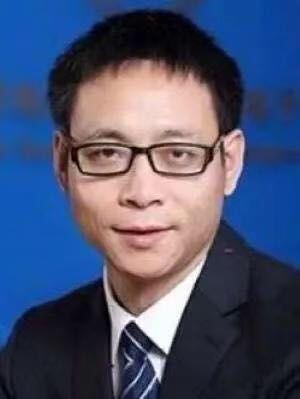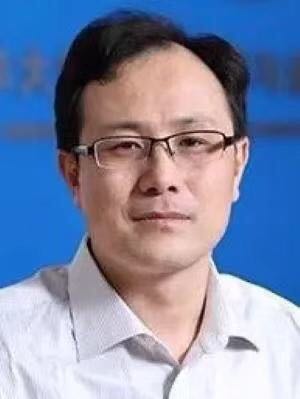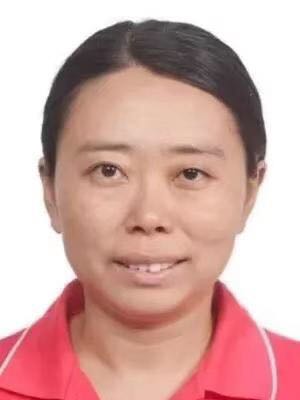The biennial teaching competition of Tsinghua University has been held for eight sessions, which provides a communication platform for young teachers and forms a good atmosphere for teaching discussion.
In the eighth THU Young Teachers' Teaching Competition, the Department of Electrical Engineering & Applied Electronic Technology (EEA) selected four young teachers to participate in the engineering group competition. Lin Jin won the first prize of the engineering group, Liu Feng and Zheng Zedong won the second prize of the engineering group, and Hao Li won the third prize of the engineering group. In this competition, the young teachers of the EEA devoted themselves to the competition and played well, showing the teaching ability and professional level of the EEA’s young teachers.

Lin Jin, an associate professor and doctoral supervisor in the EEA, completed his undergraduate, postgraduate and doctoral courses in the EEA, Tsinghua University (THU). In the meantime, he had visits and studied in the Danish National Laboratory for New Energy (Risoe) and the American National Renewable Energy Laboratory (NREL).
His main research directions are the control and access of electric gas and hydrogen energy storage system, and the basic theory of energy Internet of things and new energy power system. He has presided over or participated in a number of national key R&D projects and the projects of the National Natural Science Foundation. He has published more than 70 papers in important journals at home and abroad, of which more than 30 papers have been published in IEEE journals. At present, he undertakes the teaching courses of energy conversion principle and technology, professional English writing and so on.
Award-winning Course: Principles and Technology of Energy Conversion
The essence of energy Internet is that all kinds of energy, including electric energy, cooperate with each other to improve the use experience and reduce the overall operation cost. But the equations describing other forms of energy, such as heat, wind, chemical batteries, are different from those Maxwell equations describing circuits and electromagnetic fields. Therefore, how to treat and handle energy Internet in a unified and consistent way becomes a key academic issue.
This course is divided into three topics: 1. Thermal Energy and Its Conversion: Introduce thermodynamic cycle process, thermodynamic power generation technology and co-generation technology based on thermodynamic law; 2. Electrochemistry and Its Conversion: Introduce electrode reaction and battery technology based on thermodynamic and dynamic principles of electrochemistry; 3. Wave Energy and Its Conversion: Introduce the photovoltaic and wind power generation technologies and their combination with power electronics based on semiconductor physics and fluid principle. The course will expand the knowledge dimension of the energy Internet field for students and lay the foundation for further research in cross-cutting fields.
Award-winning remarks:
"The intersection of power network and new energy technology will weave the energy network of the next era - energy internet for human society. I am choked up with emotions every time I think that I have the opportunity to be in the turning tide of the new energy era, and to open a new basic course - Energy Conversion Principles and Technologies for the energy Internet in Tsinghua University. In this school-level competition, I have absorbed more nutrients and condensed more thinking for the course through the polishing and training of coaches and teachers as well as the interweaving and collision of knowledge of different disciplines. I hope I can inject a new impetus into the development of this course in the subsequent teaching.

Liu Feng, an associate professor and doctoral supervisor in the EEA, completed his undergraduate, postgraduate and doctoral courses in the EEA, THU. He had ever visits and studied at University of Hong Kong and Brunel University in the United Kingdom. He is a post doctor of CAS Institute of Systems and Tsinghua University, and a visiting scholar of California Institute of Technology, USA. At present, he is mainly engaged in the teaching and research of energy-power system stability analysis, robust optimal decision-making and distributed optimal control. He has presided over or participated in many national key R&D projects and the projects of the National Natural Science Foundation of China. His two monographs and more than 80 SCI papers have been published. At present, he undertakes graduate teaching courses such as Engineering Game Theory for postgraduates, and the English Practice for Electrical Engineering and the Basic Operation and Management of Power System for undergraduates.
Award-winning Course: Engineering Game Theory
The Game theory is a theory to study how decision-makers make self-interest decisions when there are interest correlations or conflicts among multiple decision-makers. In the half century since its birth, the game theory has exerted an important influence on economics and even the whole social sciences, and has become an important tool for decision-making and analysis. In modern engineering system with many decision-makers, complex decision-making environment, competition and cooperation coexist, the application engineering game theory is becoming more and more extensive. Inspired by "engineering cybernetics", Mr. Liu Feng defined "engineering game theory", which means the theory of decision-making considering the technical conditions of engineering practice by the basic concepts, modeling and solving methods of game theory applied in engineering design and test.
This course starts from three aspects: 1. The basic theory of game theory, including non-cooperative game, cooperative game and evolutionary game; 2. General method: The general solving methods of engineering game theory, including game theory modeling and solving method in multi-objective optimization, robust optimization, robust control and bi-level optimization; 3. Engineering application: including the application of engineering game method in modern energy-power system engineering decision-making problem in the form of special topic.
Award-winning remarks:
"After participating in this school competition, we have paid a lot and gained a lot. Whether the way of thinking, the actual combat skills, or the concept of understanding, we have got a lot in many aspects. If we have to say the deepest feeling, that is the "trinity" teaching concept constantly mentioned by the coaches and teachers, because in the training process, I deeply feel that the coaches and teachers teach us how to achieve "knowledge imparting, ability training and value shaping" in the classroom through their own words and deeds. Weekly teaching training, 50-minute course plans and 20-minute teaching competitions bring me full confidence and enthusiasm in the promotion of teaching methods, the sublimation of teaching awareness, and the future step on the real arena of the classroom.

Zheng Zedong, was engaged in post-doctoral research at the post-doctoral mobile station of Electrical Engineering in the EEA, Tsinghua University from July 2008 to March 2010. He served as a lector when graduating in Tsinghua University in April 2010, was appointed as an associate professor in December 2013, and served as an associate professor and doctoral supervisor in the teaching and research department in August 2016. At present, he is mainly engaged in the teaching and research of high-performance AC motor control, power electronic transformer, multi-level power electronic converter, and locomotive traction and ship propulsion.
Award-winning Course: Electromechanics
Electromechanics is the core course for undergraduates majoring in electrical engineering and automation in the EEA, and it is also one of the most difficult courses to learn. This course takes the electrical machinery as the teaching object and the steady-state electromagnetic relationship in electrical machinery as the main learning content. Through the study of the basic principles of electrical machinery, students can synthesize the knowledge of circuit principle and electromagnetic field, master the analysis method of complex electromagnetic relationship of AC-magnet-force coupling, establish the concept and mathematical model of time-space alternating electromagnetic relationship, improve the thinking ability of engineering problem solving, and lay a foundation for students' future study and research of related professional courses.
Award-winning remarks:
"Electromechanics is one of the most important professional courses in the EEA, but it involves a lot of analyses and calculation of physical principles. Students often do not have a deep understanding of it. Since I participated in the teaching work, I have tried to teach students the methods of learning electrical mechanics by my original learning experience. The results of this school-level competition also made me confident. At the same time, I also saw the enthusiasm and encouragement of my colleagues for teaching. With the purpose of teaching and educating people, I will constantly improve my teaching level and contribute all my strength to the talent education of the EEA. "

Hao Li, Senior Engineer and Master of the EEA, Tsinghua University (THU), is mainly engaged in the experimental teaching of virtual instrument and electromagnetic field. She completed a textbook and published 18 academic papers in core journals. She has won the second prize of Beijing Teaching Achievement, the first prize of THU Teaching Achievement, the second prize of THU Experimental Technology Achievement and the second prize of THU Excellent Teaching Software.
Award-winning Course: Fundamentals of Virtual Instrument
A Computers play an important role in our daily life, and what is the relationship between virtual instruments and computers? In the course of Basic Virtual Instruments, first of all, we help students understand the construction idea and basic principle of virtual instrument technology by explaining. Then, we use the mode of doing while talking to lead students to grasp the graphical programming language--LabVIEW commonly used in the development of virtual instruments. Finally, the project-based learning mode is adopted to guide students to learn how to build a virtual instrument in hands-on practice, and to cultivate students' ability to solve practical problems by using LabVIEW.
Award-winning remarks:
"This school-level competition is a good learning experience to me. I feel the love and meticulous dedication to teaching from the training teachers, and also learn how to make teaching design more attractive and exciting. I also got a lot of exercise. Next, I should incorporate the feeling and understanding of the competition into the actual work, teach carefully and train students better.


The 2018 THU Young Teachers' Teaching Competition has come to an end. The purpose of Promoting Teachers by Competition has helped young teachers grow and develop, improved the teacher education and teaching training system, and promoted the further improvement of teaching quality.
Classroom teaching is the core link of cultivating students and the real arena of teaching level. Teachers need to constantly improve their professional ability and dedicate their knowledge and spirit to the cause of education.
All previous awards:
All awards by teachers in the EEA in Beijing Young Teachers'T eaching Competition
Session(Year) |
Name |
Beijing municipal-level award |
Fourth(2004) |
Yu Xinjie |
Second prize |
Fifth(2007) |
Zhu Guiping |
First prize |
|
Xiao Xi |
First prize |
Sixth(2009) |
Kang Chongqing |
First prize and best teaching plan award |
Tenth(2017) |
Yang Ying |
First prize and best demonstration award |
|
Yu Xinjie |
Outstanding instructor award |
All awards of THU Young Teachers'Teaching Competition by teachers in the EEA
Session(Year) |
Name |
School-level award |
First(2004) |
Yu Xinjie |
First prize |
Second(2006) |
Lu Zongxiang |
First prize |
|
Zhu Guiping |
Second prize |
|
Xiao Xi |
Second prize |
Third(2008) |
Kang Chongqing |
First prize |
|
Wu Wenchuan |
Second prize |
Fourth(2010) |
Guo Qinglai |
First prize |
|
Wang Shanming |
Second prize |
Fifth(2012) |
Lu Haifeng |
Second prize |
|
Wang Fuping |
Second prize |
Sixth(2014) |
Luo Haiyun |
Second prize |
Seventh(2016) |
Yang Ying |
First prize |
Eighth(2018) |
Lin Jin |
First prize |
|
Liu Feng |
Second prize |
|
Zheng Zedong |
Second prize |
|
Hao Li |
Third prize |

















 News & Events
News & Events